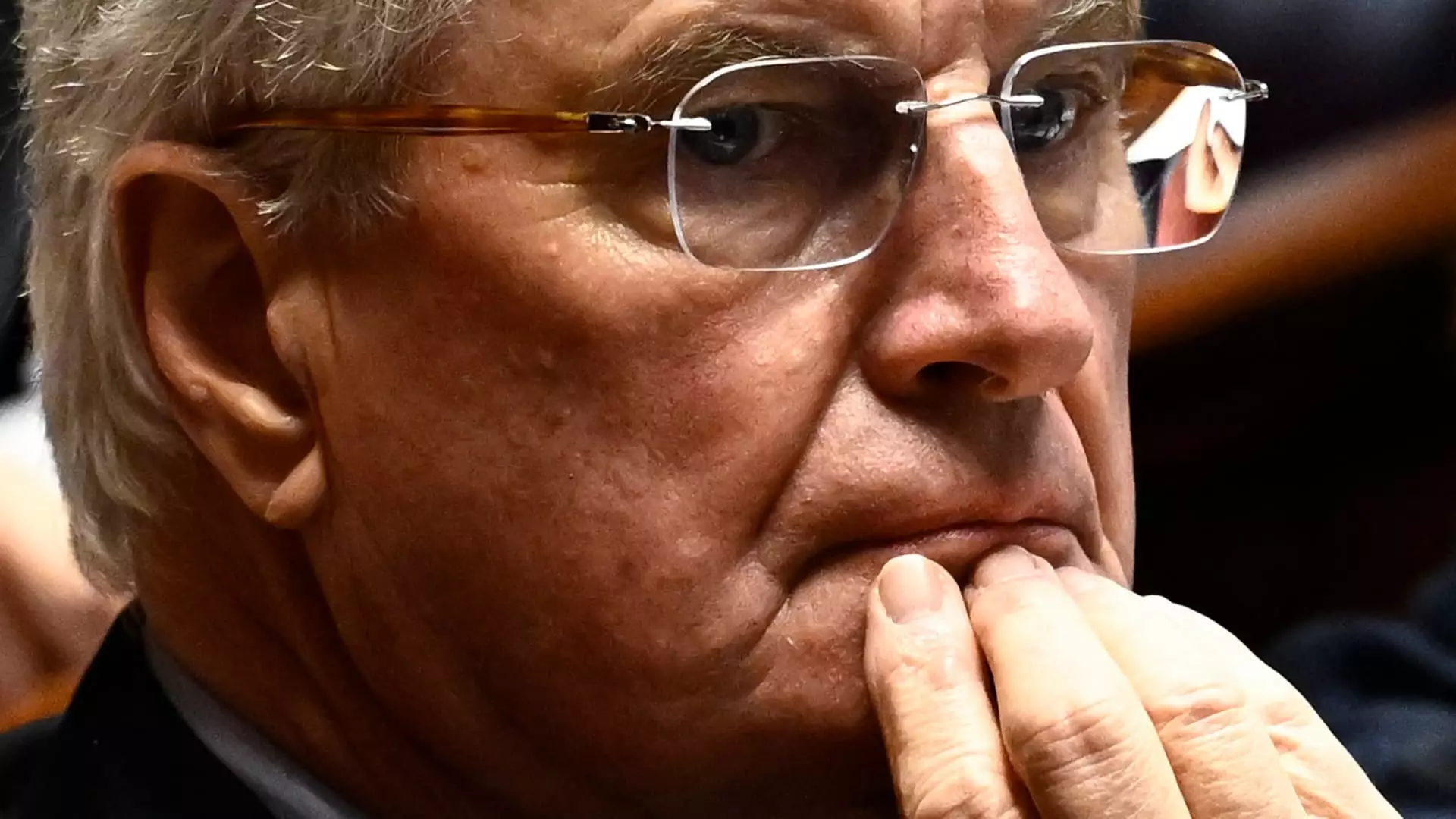In recent weeks, the political landscape across Europe has become increasingly precarious, with France standing at the epicenter of unrest. Prime Minister Michel Barnier faces a no-confidence vote, a decision that looms ominously over his administration. As Barnier remains resolutely committed to his budget plans without making concessions to opposing parties, he finds himself on the verge of a political defeat. His approach exemplifies the heightened tensions regarding national budgets in Europe, as governments across the continent grapple with fiscal constraints and public discontent.
Meanwhile, Germany appears to be following a similar trajectory, teetering on the brink of a snap election. With rumors of a no-confidence vote looming, Chancellor Olaf Scholz contends with significant internal strife within his coalition. The situation reflects a broader pattern: across the euro zone, budgetary uncertainties have become hot-button issues that threaten to destabilize governments, highlighting a regional crisis of governance triggered by stringent fiscal mandates.
The crux of the turmoil can be traced back to the European Union’s stringent fiscal regulations. These rules demand that member states maintain a maximum deficit of 3% and a debt-to-GDP ratio of 60%. Historically, nations like France, Italy, and Greece have grappled with these benchmarks, often pushing back against perceived austerity. This time, however, even traditionally sound fiscal nations such as Germany and the Netherlands find themselves navigating treacherous economic waters. As the European Commission assesses budgets not just on annual financial health but also on long-term deficit impacts, the stakes have never been higher.
Barnier’s attempt to implement tax hikes and spending cuts using Article 49.3 of the French Constitution places his government in jeopardy. This risky maneuver could culminate in his dismissal as Prime Minister, marking him as the shortest-serving leader in recent French history. This scenario casts a long shadow over the nation’s political stability and economic health, increasing borrowing costs and fostering considerable market anxiety. Such instability echoes the region’s previous financial crises, raising concerns about the future implications for European fiscal policies.
As the French government flounders, Chancellor Scholz’s administration faces equally daunting challenges. His recent commitment to a significant arms deal with Ukraine has provoked contention, deepening rifts within his coalition. Opposition figures like Friedrich Merz have already suggested that a re-evaluation of the country’s borrowing rules might be necessary if the current government collapses. This situation illustrates a broader trend of governments abandoning previously steadfast fiscal principles in urgent attempts to address immediate political constraints—a move that could undermine long-term economic stability.
The political scene in Germany is compounded by fears that a no-confidence vote could destabilize other EU nations. With previous fiscal norms eroding under political pressure, the notion of financial discipline faces existential threats. Scholz’s struggle draws to light the fragility of coalition governments in managing not just fiscal responsibilities but also the diverging priorities of various parties and the electorate.
Turning attention across the English Channel, the United Kingdom is not immune to the fallout from budget-related woes. The strained relationship between Prime Minister Kier Starmer and Finance Minister Rachel Reeves resonates with growing dissatisfaction as manufacturing slows and business confidence plummets. The perceived mishandling of budgets can have profound reflections on public sentiment, precipitating a climate of instability that mirrors that witnessed across the Continent.
Global Chief Investment Officer at BNP Paribas Wealth Management, Edmund Shing, succinctly articulated the precariousness of the situation, suggesting that Europe is mired in stagnation and upheaval while the U.S. moves towards post-electoral clarity. Shing’s observations underscore that the prevailing lack of political certainty arrives at a moment of significant potential change, one that could reshape the dynamics of global governance and economic policy.
The unfolding scenarios across France, Germany, and the United Kingdom reveal a critical juncture in European governance. While budgetary disputes may seem like isolated issues, they underscore deeper political fractures and growing discontent with established norms. As governments grapple with fiscal requirements, electoral pressures, and rising public expectations, the likelihood of further political upheaval remains speculative yet palpable. Europe stands at a crossroads, where decisions made now could reverberate well into the future, determining not just the stability of governments, but the integrity of the entire European project.


Leave a Reply